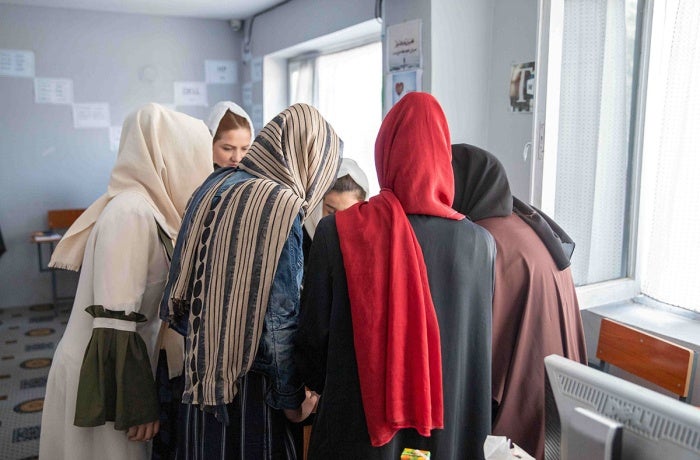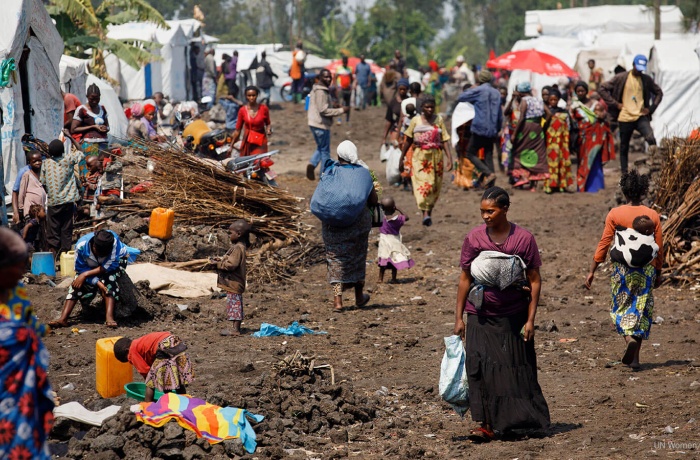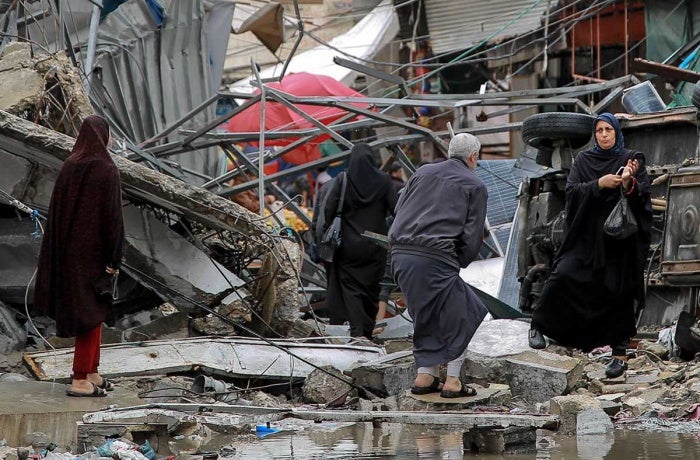Hundreds of thousands of Afghans face harsh return after expulsion from Pakistan
In early September 2023, fewer than 300 people per day crossed the official border points from Pakistan to enter Afghanistan. But since the Government of Pakistan decreed on 15 September that undocumented immigrants would be required to leave the country—a policy that applies to an estimated 1.3 million Afghan refugees—the number of daily crossings increased significantly, at one point reaching about 20,000.
Since 1 November, when the policy went into force, more than 400,000 Afghans have left Pakistan and returned to their home country, about 80 per cent of whom are women or children.
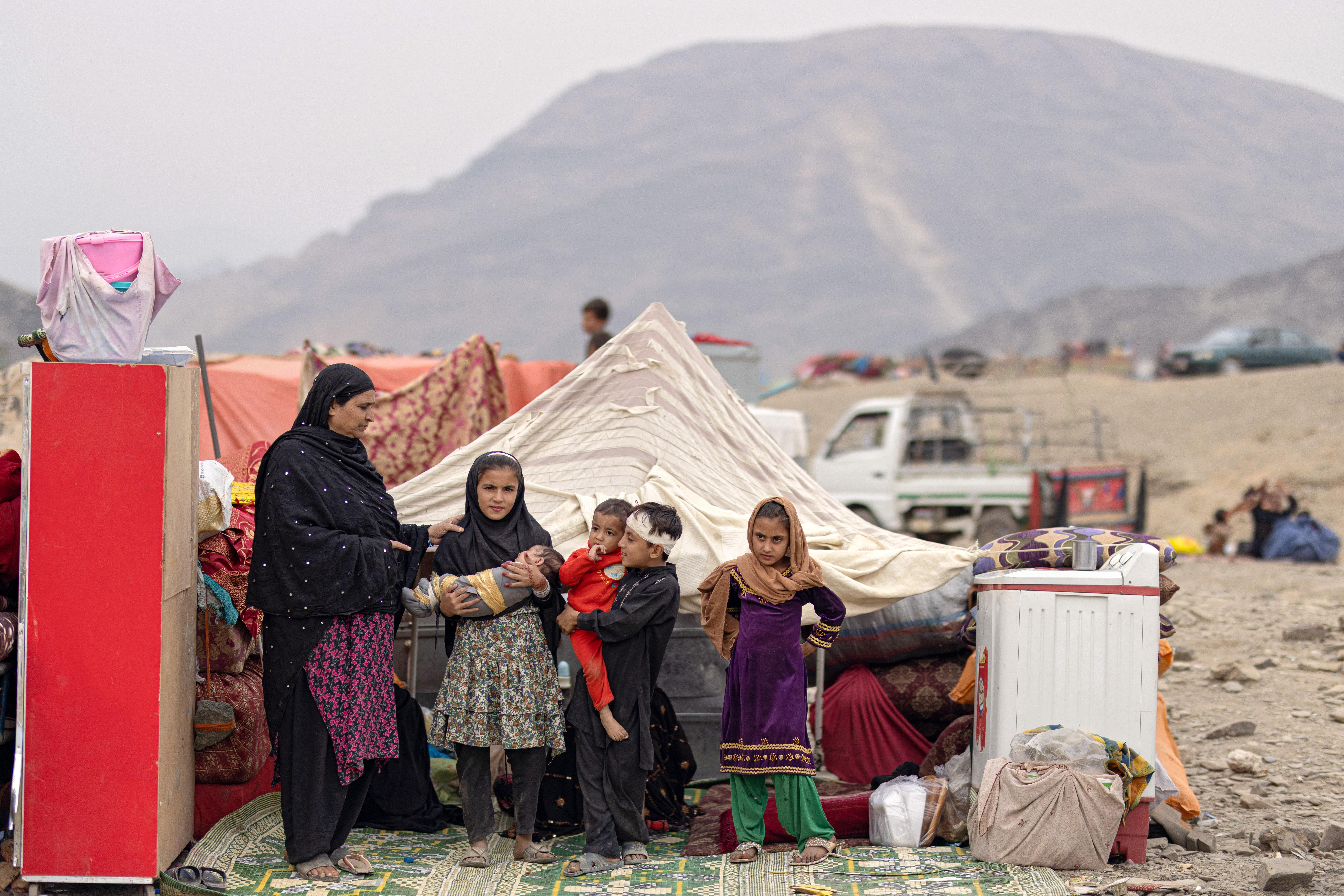
“We were forced to leave Afghanistan as my husband was jobless. Now, Pakistan expelled us”, said Nasima, a mother of six now living in Nangarhar province in eastern Afghanistan. The journey can take a severe toll, and many have been forced to sell their possessions to afford transportation.
“I have been staying in a tent, and my children got sick”, Nasima said. “I had to sell all I had so we could afford the travel back to Afghanistan. I lost my job and my house. I am very worried about my future here.”
Nabila, a mother of seven, described harsh nights stranded at a clogged border-crossing.
“Due to the rush of cars and people, we spent all night at the border”, she said. “We faced lots of difficulty passing the border. We spent a cold night as we didn’t have enough warm clothing or items to keep us warm. Then, in the early morning, we started the drive back to Afghanistan.”
A 5 December report published by the Gender in Humanitarian Action Working Group, co-led by UN Women, noted that many of the factors that initially prompted women to flee Afghanistan have not changed, and that some of the girls and young women among the returnees were born in Pakistan or have spent most of their lives there.
“I have lived in Pakistan for the last 15 years with my three children and my husband”, said Sayeeda. She said that her family had faced discrimination and harassment in Pakistan due to their lack of immigration documents, but she was now concerned about how her daughter would fare under the Taliban’s restrictions on women's movement and ability to access public life.
“My life has already been ruined, but I worry about the future of my daughter, what life she will have if she cannot go to school”, Sayeeda said.
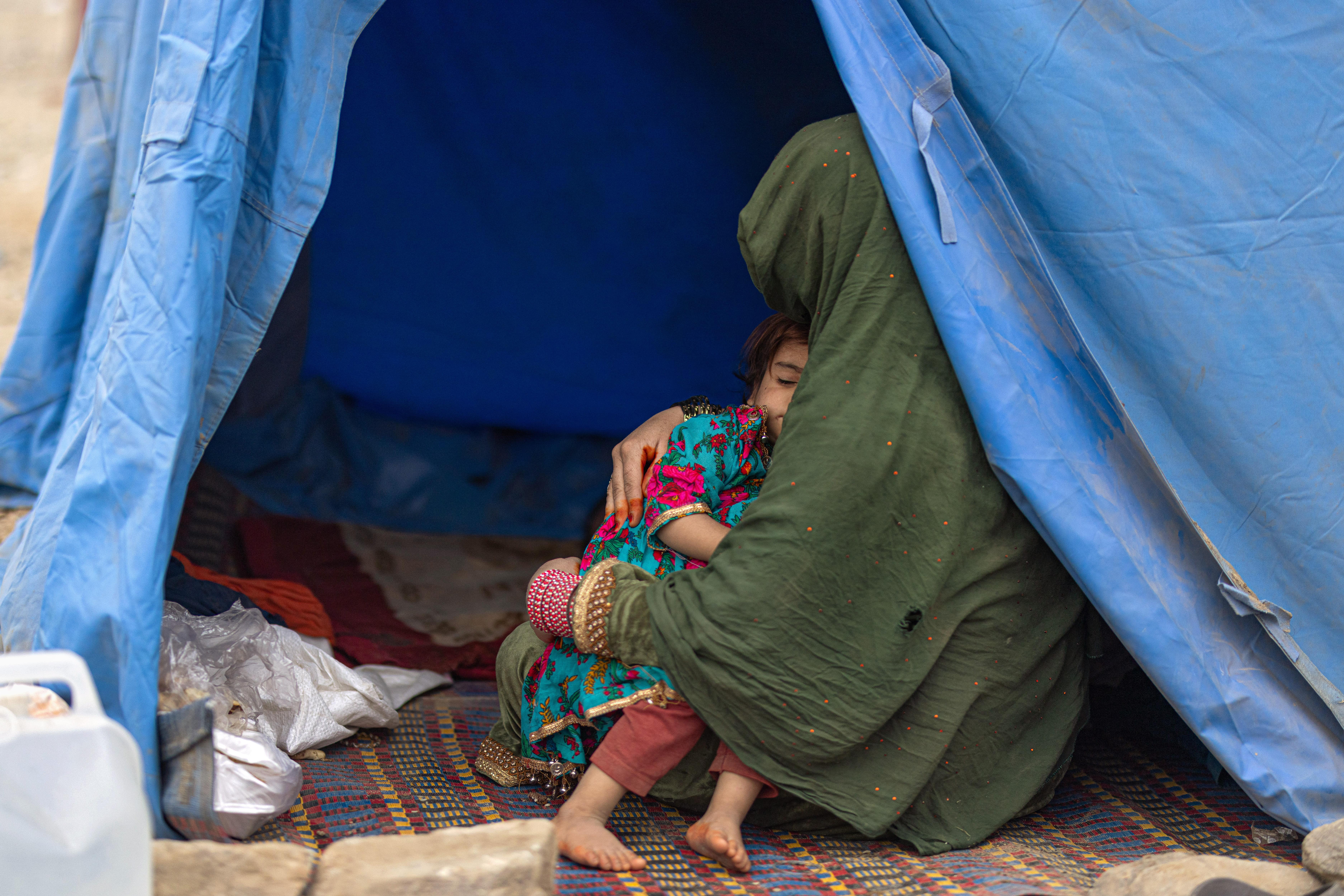
UN Women is on the ground in Afghanistan, supporting women and girls. UN Women’s strategy centres on investing in women, from scaling up support to women’s organizations delivering life-saving services, to investing in women-led businesses.
In response to the recent influx of returnees, UN Women is working in the two most impacted provinces—Nangarhar and Kandahar—assessing the differentiated needs of women and girls, and providing assistance to those most at risk.
When UN Women spoke to Nabila, she had been in Afghanistan for about 20 days and her family was renting a home in Kunar Province.
“I pray for security and development in Afghanistan, and we hope that we will have good days again back here in our homeland”, she said. “We pray that my children won’t starve and won’t face any difficulties. We wish to have a better life here and want to live happily in prosperity.”
She added, “I hope and pray that here in Afghanistan my sons and daughters will be able to go to school and study and have a successful life.”
Names have been changed in this article to ensure the safety of the Afghan woman featured.






